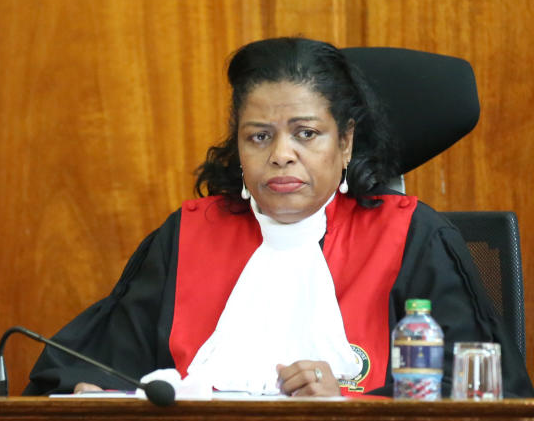×
The Standard e-Paper
Stay Informed, Even Offline

Supreme Court Judge Njoki Ndung'u. (File, Standard)
Supreme Court Judge Njoki Ndung'u has raised the stakes on judges graft allegations by inviting Directorate of Criminal Investigations (DCI) to probe her.